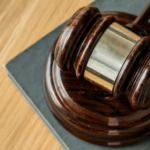The House of Representatives yesterday passed the Pallone-Thune TRACED Act, an undertaking that the Senate is expected to copy next week, and one of the bill’s biggest supporters says that President Trump will sign the bill once it hits his desk before the holidays.
Yesterday’s vote in the House was in 417-3 in favor of passing the bill, which extends the statute of limitations for potential violations to four years and gives the Federal Communications Commission the power to assess larger fines on individuals or companies deemed to have violated the law, also requires implementation of the STIR/SHAKEN call authentication protocols at no additional charge to consumers, and creates an inter-agency working group to study whether additional penalties are needed to stop robocalls.
The Pallone-Thune TRACED Act is a compromise bill that combines different bills from Rep. Frank Pallone [D-N.J.], and Sen. John Thune [R-S.D.].
“It’s a pain in the neck to everybody — it don’t matter if you’re a Democrat or Republican,” Sen. Jon Tester [D-Mont.] said in a published report. “It’s one of those issues that’s totally bipartisan because everybody is impacted by this BS. I can’t tell you how many of them I got this weekend. It’s crazy.”
Rep. Greg Walden [R-Ore.], one of the bill’s supporters in the House, went on television yesterday and said that President Trump will sign the bill into law when it gets to his desk.
While lauding the bill’s passage, consumer advocates also expressed concerns that there are not enough protections in the bill.
“This bipartisan bill unquestionably moves the ball forward to protect consumers from unwanted robocalls, especially by requiring that all telephone systems in the U.S. implement a coordinated authentication methodology to improve the accuracy of the caller-ID displayed on our phones,” said National Consumer Law Center Senior Counsel Margot Saunders. “After this bill is signed into law, attention will return to the Federal Communications Commission (FCC), which will have much to do to protect consumers from telemarketers, debt collectors, and others who are bombarding our phones with unwanted robocalls. Representatives of robocallers, such as the U.S. Chamber of Commerce, banks and the debt collectors, are seeking interpretations from the courts and the FCC that would water down, or even nullify, the Telephone Consumer Protection Act- (TCPA) our main bulwark against these unwanted calls. If the FCC does not interpret the TCPA broadly, the federal law could be gutted. Consumer advocates appreciate the attention that members of Congress, especially Senators Markey and Thune, and Representatives Pallone, Walden, Latta, and Doyle, gave to bring some relief for consumers.”









